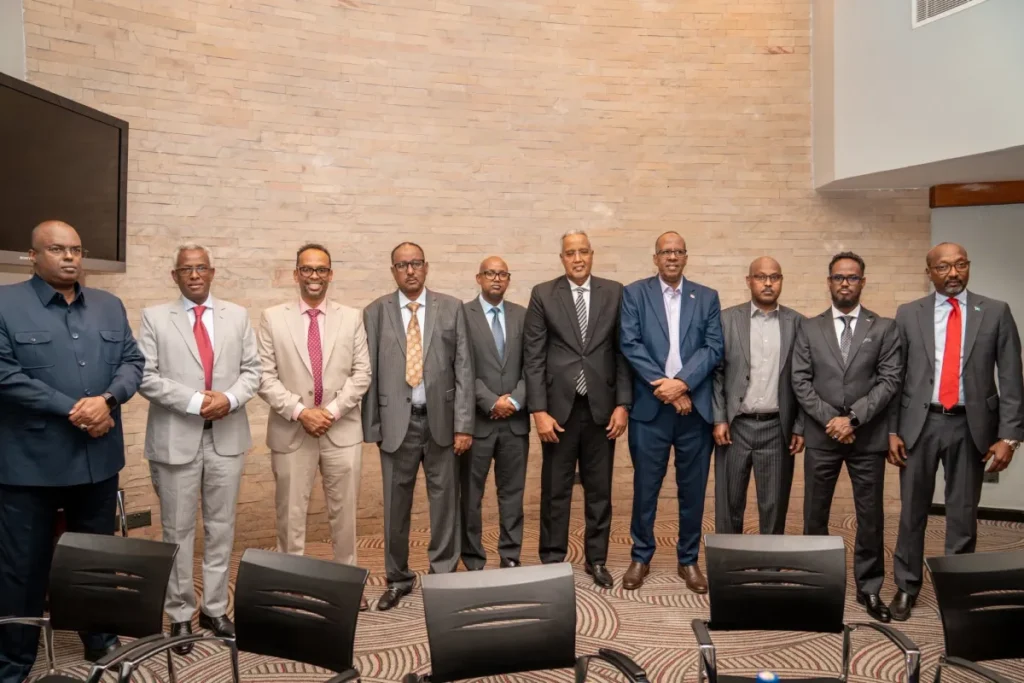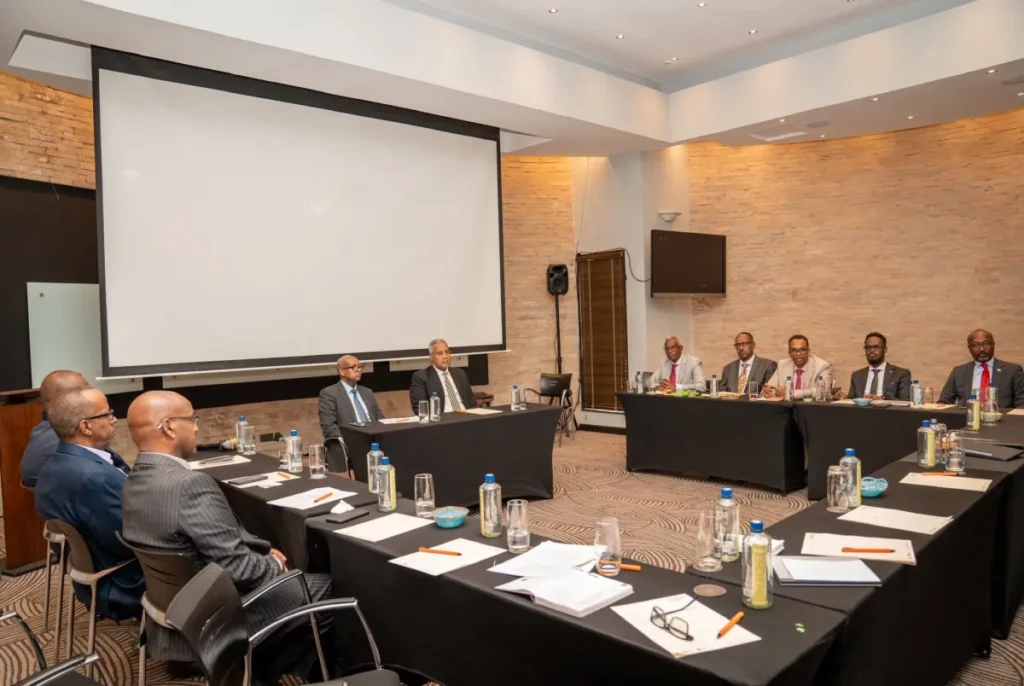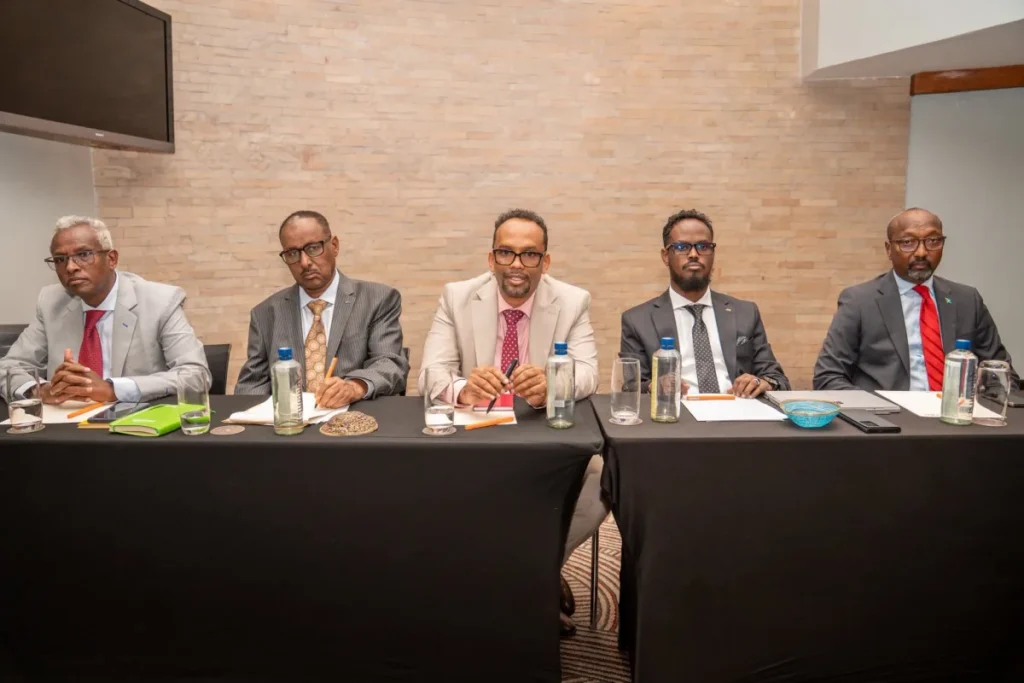
Nairobi, October 5, 2025 :- The administrations of Puntland and Somaliland reached an unprecedented understanding in Nairobi on Sunday, marking a rare moment of cooperation between two long-divided Somali regions. The agreement, signed on October 5, prioritizes shared security and stability interests over political disputes that have historically separated them.
Under the accord, both sides pledged to jointly combat illegal activities, organized crime, terrorism, and threats to regional security. They also committed to protecting coastal areas and maritime trade routes — a particularly significant move given that both administrations have separately signed agreements with Dubai covering ports, seas, and airports.
Somaliland, a self-declared independent state that broke away from Somalia in 1991 but remains unrecognized internationally, reached this deal with Puntland, an autonomous member state of the Federal Republic of Somalia. Puntland’s founding principles are based on Somali unity, making its engagement with Somaliland, and perceived endorsement of Somaliland’s autonomy, politically significant.
In addition to the security pact, the two sides agreed to facilitate free trade, the movement of people, and to maintain peace in the contested Erigavo district. While the agreement has been widely welcomed for its emphasis on stability, it has also raised questions and suspicions, even among some of the officials involved in the talks.
Most negotiations between the two administrations were held in secrecy, with the Nairobi meeting being the only publicly acknowledged session. Political observers suggest the timing of the talks followed Somali President Hassan Sheikh Mohamud’s visit to Kismayo, where he met Jubbaland leader Ahmed Mohamed Islam (Madobe). Fears of a potential deal between President Hassan Sheikh and Madobe reportedly prompted Puntland and Somaliland leaders to convene urgently in Nairobi, some traveling directly from Dubai and Somalia.
The agreement was signed by Said Jama Ali Qorsheel, Puntland’s Minister of Health, and Khadar Hussein Abdi, Somaliland’s Minister of the Presidency. The process was facilitated by Mohamed Dhabanacad, an advisor to Puntland President Said Abdullahi Deni, in secret back doors, since the intervention of the Federal Government in these regions.
Somaliland’s Minister of Defense, Mohamed Yusuf, clarified that the agreement was “purely security-related” and did not touch on borders or Somaliland’s sovereignty. He reaffirmed that Somaliland’s borders remain those established during the colonial era and reiterated that Puntland is an administration within Somalia’s federal system.
“We are eliminating the artificial enemies that were inserted between us, the administration you mentioned,” told to the BBC reporter, Yusuf said, referring to the newly formed Northeastern Administration in Las Anod. He added that both sides would confront internal and external threats together.
Puntland’s Minister of Interior, Abdi Farah Juxa, offered a more restrained interpretation in an interview with the BBC.
“Everything is documented. What we discussed was counterterrorism, strengthening peace in Erigavo, free movement, and trade. The issue of Las Anod was not on the table,” Juxa said.
Addressing questions about border issues and ongoing counterterrorism operations, Juxa added:
“We are fighting ISIS in the Calmiskaad mountains. Al-Shabaab operates in the Calmadow range, which lies on the Somaliland side. Should we fight each other instead of the extremists? We’ve chosen peace over war, and cooperation over conflict.”
However, opposition politicians in Puntland swiftly rejected the memorandum of understanding (MoU). Mohamed Mu’arad, a leader of one opposition faction, told Daljir Media a lokal radio in Puntland, the deal “unacceptable and null,” accusing the Puntland president of “losing direction.”
His statement, notably acknowledging Calmadow as being on the Somaliland side, appeared to contradict the position taken a month earlier by traditional elders and community leaders from Sanaag, who had urged President Deni to reaffirm Puntland’s claim to the area.
Unresolved Issues and Political Undercurrents
Despite the historic nature of the agreement, several contentious issues remain unresolved. Interviews conducted by the BBC with both ministers suggest that Puntland and Somaliland view each other as strategic partners, but also as political allies against Somalia’s Federal Government in Mogadishu.
Analysts believe the two administrations are aligning to counter emerging political movements in the Sanaag and Sool regions, protect shared economic interests, and coordinate their policies in line with the United Arab Emirates (UAE), This move opposes FGS interference in regional governance.
At a deeper level, the Nairobi accord reflects political maneuvering over the future of Sanaag and Sool, particularly Sanaag, now a strategic hotspot in the ongoing contest for territorial influence. The deal also sits at the intersection of broader geopolitical rivalries, with the UAE and the United States on one side and Turkey on the other, each seeking influence along the Red Sea corridor.
Observers warn that if these competing interests intensify, the fragile peace in the Horn of Africa could be at risk. The UAE-Turkey rivalry, already evident in conflicts across Sudan, Libya, and Yemen, could extend its reach into Somalia, further complicating the political landscape.
For the people of Sanaag and Sool, regions that have endured decades of contested authority this agreement brings uncertainty. Once a purely local dispute, their struggle now sits at the crossroads of regional and international power politics.



Sahan Post
Discover more from SahanPost - English
Subscribe to get the latest posts sent to your email.